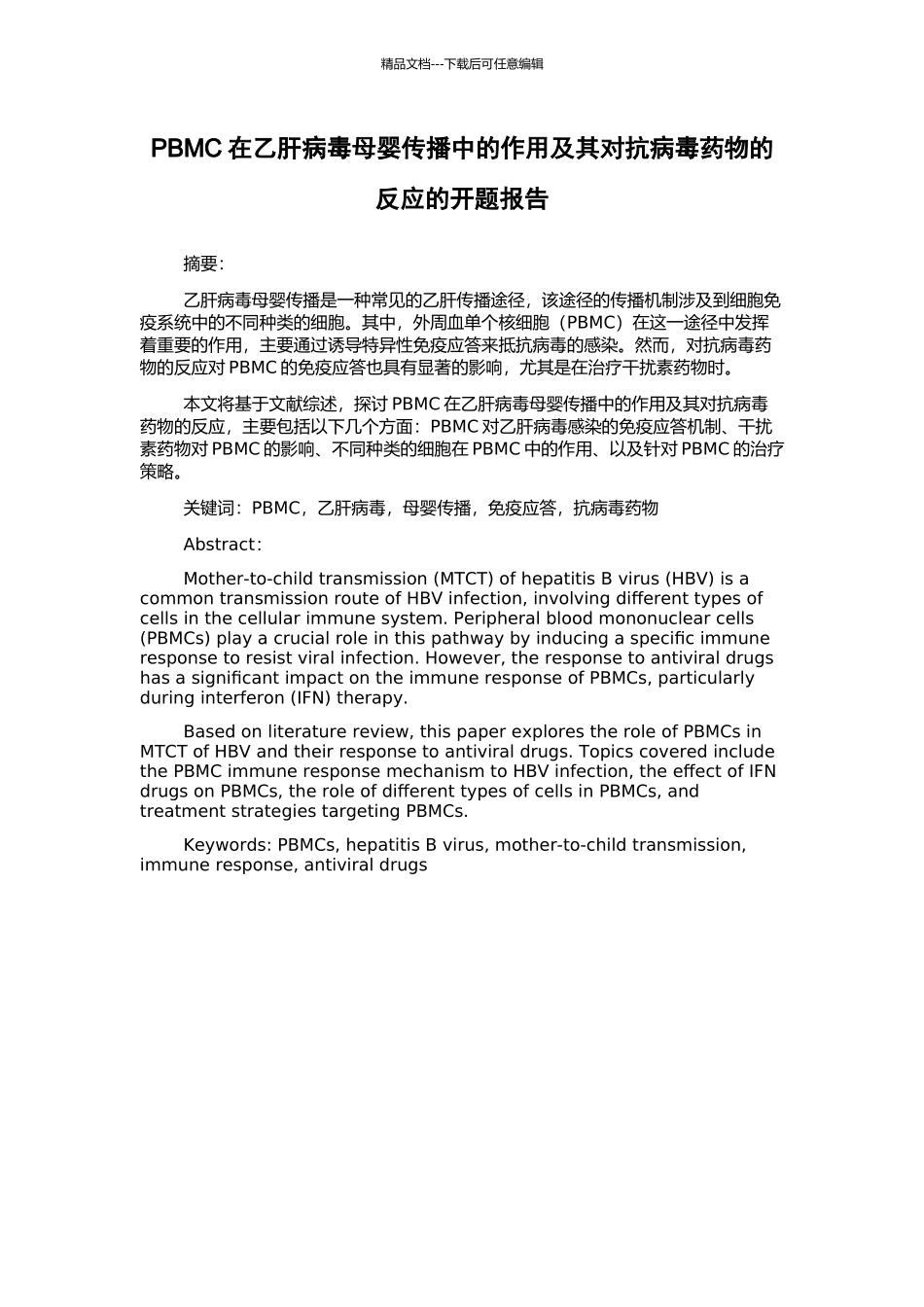精品文档---下载后可任意编辑PBMC 在乙肝病毒母婴传播中的作用及其对抗病毒药物的反应的开题报告摘要:乙肝病毒母婴传播是一种常见的乙肝传播途径,该途径的传播机制涉及到细胞免疫系统中的不同种类的细胞。其中,外周血单个核细胞(PBMC)在这一途径中发挥着重要的作用,主要通过诱导特异性免疫应答来抵抗病毒的感染。然而,对抗病毒药物的反应对 PBMC 的免疫应答也具有显著的影响,尤其是在治疗干扰素药物时。本文将基于文献综述,探讨 PBMC 在乙肝病毒母婴传播中的作用及其对抗病毒药物的反应,主要包括以下几个方面:PBMC 对乙肝病毒感染的免疫应答机制、干扰素药物对 PBMC 的影响、不同种类的细胞在 PBMC 中的作用、以及针对 PBMC 的治疗策略。关键词:PBMC,乙肝病毒,母婴传播,免疫应答,抗病毒药物Abstract:Mother-to-child transmission (MTCT) of hepatitis B virus (HBV) is a common transmission route of HBV infection, involving different types of cells in the cellular immune system. Peripheral blood mononuclear cells (PBMCs) play a crucial role in this pathway by inducing a specific immune response to resist viral infection. However, the response to antiviral drugs has a significant impact on the immune response of PBMCs, particularly during interferon (IFN) therapy.Based on literature review, this paper explores the role of PBMCs in MTCT of HBV and their response to antiviral drugs. Topics covered include the PBMC immune response mechanism to HBV infection, the effect of IFN drugs on PBMCs, the role of different types of cells in PBMCs, and treatment strategies targeting PBMCs.Keywords: PBMCs, hepatitis B virus, mother-to-child transmission, immune response, antiviral drugs
